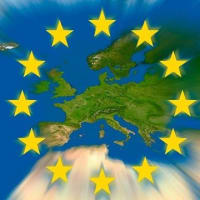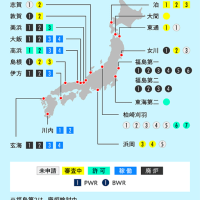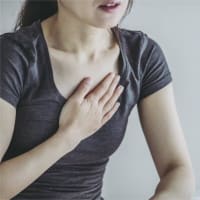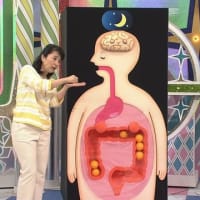11/01/2012. prof. Kunihiko Takeda (Chubu University)
Is it necessary to eat "breakfast? "
"breakfasttdyno.254-(15:41).mp3" is downloaded.
From now on, in the front, the talk "breakfast must be eaten" suddenly came out for about 20 years.
although the government and mass media seldom said the thing of individual health till then -- from these days -- "-- the so-called healthy instruction " has appeared completely.
Historically [ that I had sense of incongruity a little ] from the first, they were two per day, and when Japanese people got up in the morning, after they carried out and did a job to the rice field, they were the rhythms of the life [ take / usually / a meal ].
Moreover, it became my sense of incongruity that an animal also usually has many carnivores taken in the evening one per day as for it.
Furthermore, although I had gone to France well at the time, when it stays at the hotel in France, "continental breakfast" comes out and it ends only with bread and coffee.
Although that which called it "the British naval officer's breakfast", etc. and occasionally applied honey to the hot cake fully, and a lot of milk could be given, it was usually a simple breakfast.
Then, when the book of nutritional science was read or I was asking the teacher, the teacher of much nutritional science of those days was puzzled, and answered "Yes, the teacher does not understand there well."
The reason and experiment day were written to the book of comparatively firm nutritional science in it to be the principle principles "a meal is nutrition."
That is, if the body gets malnutrition and the glycogen concentration of a meal of liver decreases, for example, an appetite center will be stimulated by the animal, and it tries to take food.
That is, for example, if boiled rice is eaten, it will be decomposed even to grape sugar, and it is absorbed from a small intestine and turns to the whole body.
If grape sugar comes out, however it remains into blood in 5 minutes at the shortest, it will become glycogen and it will be stored in liver or muscles.
Since it is only half a day until glycogen is lost if a meal is not taken (about 1500 kcal), adipose tissue is decomposed next.
Since a little glycogen still remains in liver when you get up in the morning, since only the energy near basal metabolism is used while glycogen fully remains and is still sleeping, when you will sleep, if you are living an ordinary life and a delicious thing is eaten for supper, it will be said that it is of a poor appetite.
These days, diabetic research progresses to a diet, sports science, and it, and change of the insulin, etc. are investigated in detail by the relation between the glycogen in blood, glycogen, and fat, and it.
When the result of research is summarized simply, all are as reason, and it is the simple relation of decreasing if glycogen will increase if a meal is taken, and it does not eat for a while.
But concentration in blood controls the burst size of the glycogen of liver, and is keeping it almost constant.
With it, there is also much doubtful data and there is.
For example, since the Ministry of Education, Culture, Sports, Science and Technology and a specialist have said, "The children and students who ate breakfast have good results", if it investigates, only "the relation between breakfast and results" is investigated.
A morning hour of rising etc. are investigated to see it has zeal in that it is likely to have influence on results, for example, family environment, the rhythm of a life of parents, and education, if it is a scholar of a certain amount of level.
There is a tendency for a college student also "to be able to do [ the student who eats breakfast is serious and ] self-control" on the average in "the student who eats breakfast", and "the student who does not eat breakfast", and since the student who does not eat is "every day and night are late and late [ a morning ]", the relation to results should have this.
Moreover, probably, sex is [ average results ] also related to the student who eats breakfast, when there are many schoolgirls, since female persons are tops.
When such, always come out, "May not breakfast be the cause in fact?
Although there are if it says that breakfast is important, because it will occur early", this is "mere child's play" or the like.
It is like saying to a small child, "Shall we since a bogy comes, sleep?"
Thus, when it is, "There is no telling what is true" will be said, before long, if "breakfast is eaten, the head will feel it refreshed and the efficiency of work will be increased.
This becomes the plausible explanation [ like ] of since the glycogen in blood is the lowest when you get up in the morning."
.........
It seems that it is as follows when you study various data and it thinks from scientific rationality.
1) Since the glycogen of liver will be used by a morning if it eats in the evening, I would like to come to eat breakfast noting that he sleeps at 12:00 night.
2) if it has a meal around 10:00 at night, since glycogen still remains in the morning -- appetite -- or it is not necessary to eat
3) When you sleep, there is no firm result of research of having to be hungry, and it is the range of individual difference.
4) Since body temperature will fall and it will become basal metabolism if you sleep, how whose glycogen decreases also decreases.
5) In order to set it in 24 hours since the biological clock is 25 hours when you get up in the morning, the talk of basking in a solar light and the family that drinks tea or coffee and awakes is effective.
6) Getting up in the morning, those of a good appetite eat and those who are not do not eat.
7) It does not have the obsession that breakfast must be eaten.
8) In the morning, those of a poor appetite eat easy sweets around 10:00 (this becomes neither diabetes nor a cause of overweight ... those with academic data).
Supposing man lives in nature, it is appropriate to think that it eats to eat, and he sleeps to sleep and it is satisfactory.
Not wanting to eat is what does not need to be eaten since the glycogen of liver is still in a certain state fully.
If an unbalanced diet extreme, of course is carried out or alcohol is drunk to , since all the balance collapses, the honest thing "a feeding center will be stimulated if the glycogen of liver decreases" etc. will also go wrong.
if the book with which he has recommended to eat breakfast is read with , if breakfast is not eaten, since glycogen is sometimes already lost almost.
Since glycogen is required for brains, have written that he is absent-minded" etc., but this is "a case where ate a light supper around 6:00 and he sleeps last night" , it is some illnesses when it will be said that he does not want to eat breakfast, even if it basks in a solar light and talks about a family to somewhat light movement and coffee, and it.
It could not be called the problem of breakfast.
Moreover, since the belly was decreasing in 11:00 night, he ate heartily (you may eat, if it is decreasing), and slept.
When you get up in the morning, that is, the natural talk which were of a poor appetite, and since there is glycogen of enough of liver in this case, it is not necessary to eat independently.
Managing coffee and bread in the morning awakes with coffee, it regains a rhythm, and the person of Europe which was an intake of excess nutrition a little in that sense thinks that he is appropriate in that the glycogen by daytime is supplied with bread (carbohydrate).
.......
Finally he notices the most important thing.
It is "making the mental condition natural and eating to eat."
It is because the body is asking for nutrition when saying that he would like to eat if it is said [ why ] whether be, so it is "all disassembling food once" and saying, "A thing required for the body is re-compounded" when it eats there.
That is, if it has the obsession of "if breakfast is not eaten" not to eat, since there is no telling what is required for the body, it will become causes, such as overweight, but the body needs a certain nutrition to eat.
At the point, the science of the present age of "feeling hungry only with the glycogen of liver" will be corrected before long.
I would like to investigate gradually "I would like why to come to eat a midnight snack", "why ramen noodles to become delicious if alcohol is drunk", etc. at the point.
It is because there must be an appropriate reason and it must be good for health.
Such a fundamental thing is mistaken because there is a talk which says, for example, "If collagen is eaten .."
The protein of man's body is a certain thing about 30%, and collagen is ordinarily compounded in the body.
Moreover, since it will be decomposed scatteringly (digestion) and it will be absorbed, and collagen was eaten, collagen does not necessarily go [ if protein is eaten, ] to bodily [ somewhere in ].
Although advertisement of the latest collagen is a kind of exaggerated advertisement, it is a problem which means "Stopping scientific thinking" more than it, and asks for the ethics of the industrial world with an anion.
(October 2, 2012,Heisei 24)
Kunihiko Takeda
This is The lecture of Fukuyama city Jpn.
above
11/01/2012. 武田邦彦 (中部大学)
"朝食は食べる必要があるのか?"
"コラーゲンは摂る必要はない!! "
「breakfasttdyno.254-(15:41).mp3」をダウンロード
今から20年ほど前、急に「朝食を食べなければいけない」という話がでてきました。それまでは個人の健康のことをあまり政府やマスコミが言わなかったのですが、この頃から、「健康指導」なるものが本格的に登場してきました。
私がやや違和感を持ったのは、もともと歴史的には日本人は一日二食でしたし、朝起きたら田んぼに行って一仕事してから食事を取るのが普通の生活のリズムでした。また動物は普通1日一食で、それも夕刻に取る肉食動物が多いことも私の違和感になりました。
さらにその頃、私は良くフランスに行っていましたが、フランスのホテルに泊まると「コンチネンタル・ブレックファスト」というのがでてきて、パンとコーヒーだけで終わりです。時には、「イギリス海軍士官の朝食」とかいってホットケーキにたっぷりと蜂蜜がかかったものと大量の牛乳を飲まされる事もありましたが、普通は質素な朝食でした。
そこで、栄養学の本を読んだり、先生にお聞きしたりしていると、当時の多くの栄養学の先生は戸惑い「ええ、そこはよく分かっていないのですが」とお答えになりました。その中で比較的しっかりした栄養学の本には、「食事は栄養補給である」という原理原則と、その理由や実験デーアットが書いてありました。
つまり、食事というのは体が栄養不足になり、たとえば肝臓のグリコーゲン濃度が減ると食欲中枢が刺激されて、餌を採ろうとするのが動物だということでした。
つまりたとえばご飯を食べるとそれがブドウ糖まで分解され、それが小腸から吸収されて全身に回る。最短で5分で血中にブドウ糖がでるけれど、余るとグリコーゲンになり、それが肝臓や筋肉に貯蔵される。食事を取らないとグリコーゲンがなくなるまで半日ぐらいなので(約1500キロカロリー)、次に脂肪組織が分解されます。
普通の生活をしていて夕食に美味しいものを食べると寝るときにはまだグリコーゲンが充分に残っていて、寝ている間は基礎代謝に近いエネルギーしか使いませんので、朝起きたときにはまだ肝臓に少しのグリコーゲンが残っているので食欲がないということになります。
最近では、ダイエット、スポーツ科学、それに糖尿病などの研究が進んで、血中のグリコーゲン、グリコーゲンと脂肪の関係、それにインシュリンの変動など詳しく調べられています。研究の結果を簡単にまとめますと、すべてが理屈通りで、食事を取るとグリコーゲンが増えて、しばらく食べないと減るという単純な関係です。
でも、血中の濃度などは肝臓のグリコーゲンの放出量をコントロールしてほぼ一定に保っています。
それとともに、いかがわしいデータも多くあります。たとえば「朝食を食べた子供や学生の方が成績が良い」と文科省や専門家が言っているので、調べてみると、「朝食と成績の関係」しか調べていないのです。ある程度のレベルの学者なら、成績に影響がありそうなこと、たとえば、家庭環境、親の生活のリズム、教育に熱意を持っているか、朝の起床時間などを調べます。
大学生でも「朝食を食べる学生」と「朝食を食べない学生」とでは、平均的には「朝食を食べる学生は、真面目で、自己管理ができる」傾向があり、食べない学生は「毎日、夜が遅く、朝が遅い」ということですから、これが成績に関係が無いはずもありません。
また、朝食をたべる学生に女学生が多い場合などは、平均的な成績は女性の方が上ですから、性別も関係してくるでしょう。
このような時にいつもでてくるのは、「本当は朝食が原因でなくても良いじゃないか。朝食が大切と言えば早く起きるのだから」というのがありますが、これは「子供だまし」の類いです。幼児に「お化けが来るから寝よう」と言うようなものです。
このようにしていると「何が本当だかわからない」ということになり、そのうち、「朝食を食べると頭がスッキリして、仕事の能率があがる。これは朝起きたときに血中のグリコーゲンが最も低くなっているから」というようなまことしやかな説明になるのです。
・・・・・・・・・
さまざまなデータを勉強し、科学的な合理性から考えると、次のようになるようです。
1) 夜12時に寝るとして、夕刻に食べれば朝までに肝臓のグリコーゲンが使われるので朝食が食べたくなる。
2) 夜10時頃に食事をすると、朝はまだグリコーゲンが残っているので食欲がないし、食べる必要もない。
3) 寝るときには空腹でなければならないというしっかりした研究成果はなく、個人差の範囲である。
4) 寝ると体温が下がり、基礎代謝になるのでグリコーゲンの減り方も少なくなる。
5) 朝起きたとき、体内時計が25時間なので、それを24時間にセットするために、太陽の光を浴びることと、お茶かコーヒーを飲んで覚醒する、家族との話が有効である。
6) 朝起きて、食欲がある人は食べ、無い人は食べない。
7) 朝食を食べないといけないという強迫観念を持たない。
8) 朝、食欲がない人は、10時頃簡単なお菓子を食べる(これは糖尿病や肥満の原因にならない・・・学問的資料あり)
もし人間が自然の中に住んでいるとすると、食べたいときに食べ、寝たいときに寝て問題はないと考えるのが妥当です。食べたくないというのは肝臓のグリコーゲンがまだ充分にある状態ですから食べなくても良いのです。
もちろん極端な偏食をしたり、ムチャクチャにお酒を飲んだりしていれば、すべてのバランスが崩れますから「肝臓のグリコーゲンが減ったら摂食中枢が刺激される」などというまともなことも狂います。
朝食を食べることを勧めている本をジックリと読んでみると、「朝、おきたときにはすでにグリコーゲンがほとんど無くなっているので、朝食を食べないと大変な事になる。頭脳はグリコーゲンが必要だから、ぼーっとする」などと書いてありますが、これは「前の夜、6時頃軽い夕食を食べて寝た場合」で、朝、おきて太陽の光を浴び、少し軽い運動やコーヒー、それに家族との話をしても、朝食が食べたくないということになると、それは何かの病気です。朝食の問題とは言えないでしょう。
また、夜11時にお腹が減っていたので、たらふく食べて(減っていたら食べて良い)、寝た。朝起きたら食欲がなかった・・・というのも当たり前の話で、この場合は肝臓のグリコーゲンは充分にあるので、別に食べる必要もありません。
その意味でやや栄養過多だったヨーロッパの人が、朝はコーヒーとパンで済ませるというのは、コーヒーで覚醒してリズムを取り戻し、パン(炭水化物)で昼までのグリコーゲンを補給しておくという点では妥当なように思います。
・・・・・・・
最後にもっとも重要なことに気がつきます。それは「精神状態を自然にしておいて、食べたいときに食べる」ということです。なぜかというと、食べたいというときには体が栄養を求めているので、そこで食べると、「食物を一回、全部分解して」、「体に必要なものを再合成する」と言うことだからです。
つまり食べたくないときに「朝食は食べなければ」というような強迫観念を持つと、体はなにが必要かわからないので肥満などの原因になりますが、食べたい時には体は何らかの栄養を必要としています。その点では「肝臓のグリコーゲンによってだけで空腹を感じる」という現代の科学はそのうち、修正されるでしょう。
その点で、「夜食はなぜ食べたくなるのか?」、「お酒を飲むとなぜラーメンが美味しくなるのか?」なども追々、調べていきたいと思っています。それなりの理由があり、体に良いはずだからです。
このような基本的なことを間違えるのは、たとえば「コラーゲンを食べると・・」というような話があるからです。コラーゲンは人間の体のタンパク質の30%ほどあるもので、普通に体内で合成されています。またタンパク質は食べるとバラバラに分解(消化)されて吸収されますから、コラーゲンを食べたからコラーゲンが体のどこかに行くわけでもないのです。
最近のコラーゲンの宣伝は一種の誇大広告ですが、それ以上に「科学的な思考を停止させる」という意味で、マイナスイオンとともに産業界の倫理を求める問題です。
(平成24年10月2日)
武田邦彦
« 福山市の講演
above.




















※コメント投稿者のブログIDはブログ作成者のみに通知されます